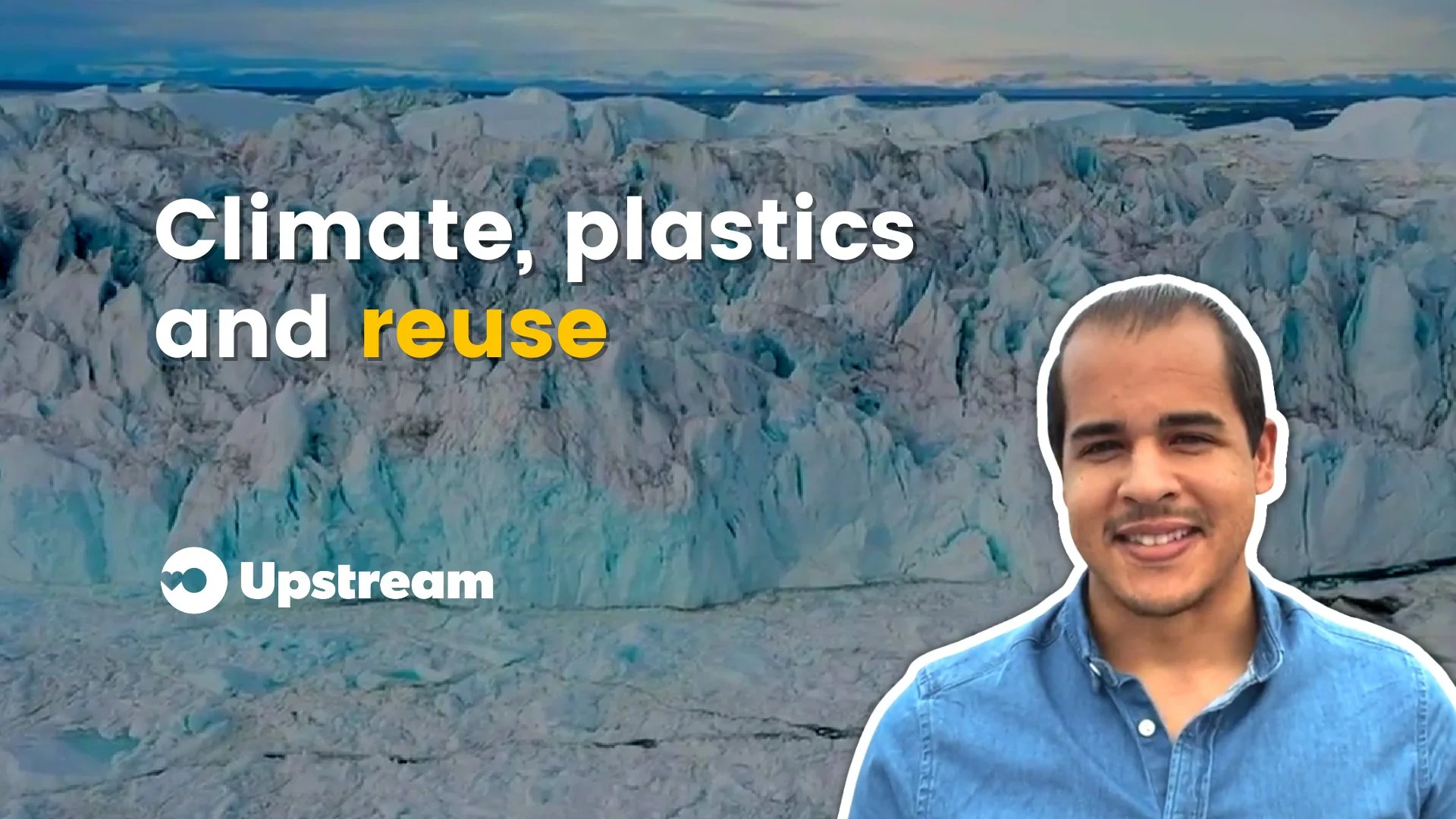Climate, plastics and reuse
Reuse solutions to the climate and plastics problems
According to the recent report by the Intergovernmental Panel on Climate Change (IPCC), the window for limiting global warming to relatively safe levels is rapidly closing. Immediate and unprecedented action from every country will be necessary in order to limit the global temperature rise to 1.5℃ above pre-industrial levels. However, there are many political, economic, and behavioral challenges to overcome.
The global population is estimated to be over 7.7 billion people and is expected to grow by 2 billion in the next 30 years. Resource use, waste production, and environmental degradation are accelerated by population growth. A main exacerbating factor is the dominance of the linear “take, make, dispose” consumption model. This consumption-based economic model is not sustainable, and has created a culture that embraces and rewards the production and consumption of single-use disposable products and packaging.
Plastics play a key role in the “throw-away” economy and the resulting negative consequences – such as 150 million metric tons of plastic in our oceans as of 2015. Plastic food and beverage packaging is a major contributor, making up nearly 70% of all litter found on streets and in waterways.
“...focusing on only one material type instead of single-use in general fails to address the core issues and can even result in worse outcomes.”
However, the problem isn’t just plastics – it’s “single-use” itself. Alternative single-use materials have a host of environmental and human health impacts, and focusing on only one material type instead of single-use in general fails to address the core issues and can even result in worse outcomes. There is still pollution, climate, resource extraction, toxicity, and biodiversity impacts - all caused by regrettable substitutes (bio-based plastic, aluminum, paper, wood, bamboo).
Why CAPs need CBEIs
Climate Action Plans (CAPs) are comprehensive roadmaps for reducing greenhouse gas emissions for cities and municipalities, and present an opportunity for source reduction and reuse concepts to be introduced as climate mitigation strategies. However, existing CAPs can fail to adequately account for the embedded emissions of the products and services used within a jurisdiction, but manufactured outside of its boundaries.
“Consumption-based emissions inventories (CBEIs) have uncovered as much as 60% more emissions than the current estimates for cities around the world.”
This is where consumption-based emissions inventories (CBEIs) have significant value, as they account for all greenhouse gas emissions produced from imported goods and services. In other words, CBEIs calculate emissions associated with producing, transporting, using, and disposing of products and services. Based on an analysis completed by C40, CBEIs have uncovered as much as 60% more emissions than the current estimates for cities around the world. Reuse can serve to mitigate some of these new emissions, and can provide an easier path to overall emissions reduction.
Studies consistently show that reusable foodware has significantly less environmental impacts than their single-use counterparts and can be a key strategy for reducing overall emissions. Legislative and financial support for source reduction and reuse can be substantially improved by incorporating CBEIs into CAPs – and by emphasizing the climate benefits of those concepts compared to the single-use status quo.
So, HOW does reuse result in emissions reductions?
With the petrochemical industry expanding to fulfill the demand for single-use plastics, reuse offers an alternative that can help ‘turn off the tap’, as reusables slow demand and the overall expansion of the plastics industry; thus resulting in a reduction of greenhouse gas emissions.
Reuse reduces greenhouse gas emissions by eliminating the need for non-plastic, single-use alternatives. The life cycle CO2 emissions from disposable paper, plastic, and bioplastic cups are 3 to 10 times greater than those of reusable ceramic, stainless steel, and glass.
Reusable food serviceware beats single-use alternatives through every environmental measure (climate, water, land use, waste, and pollution). Reusables always hit a break-even point where they outperform the disposables, and the benefits to the environment accrue with each additional use past that point.
Reusable systems can also reduce overall water and energy usage, with the use of efficient dishwashing equipment reducing overall energy usage by 45%. In addition, making 500 single-use paper cups requires 370 gallons of water, while making one ceramic cup and washing it 500 times requires only 53 gallons of water.
Non-toxic reuse helps reduce overall pollution, chemical exposure, and litter and can greatly improve the overall living conditions of a community, while reducing overall litter and waste management costs for local businesses and government.
Moving forward into the New Reuse Economy
At Upstream, we believe reuse is a critical mechanism in solving the world’s plastics and climate problems. By embedding consumption-based emissions inventories (CBEIs) into climate action plans, communities will be able to adequately account for all of the greenhouse gas emissions being emitted from the products and packaging they use. In addition, communities will need to develop and adopt new and swift emissions reductions strategies that are scalable and prioritize a move away from the current “throw-away” economic model - like reuse solutions.
To learn more and help activate climate solutions through reuse in your community, check out our new Climate Toolkit, offering fact sheets, graphics, a model letter to your legislators, and more.




